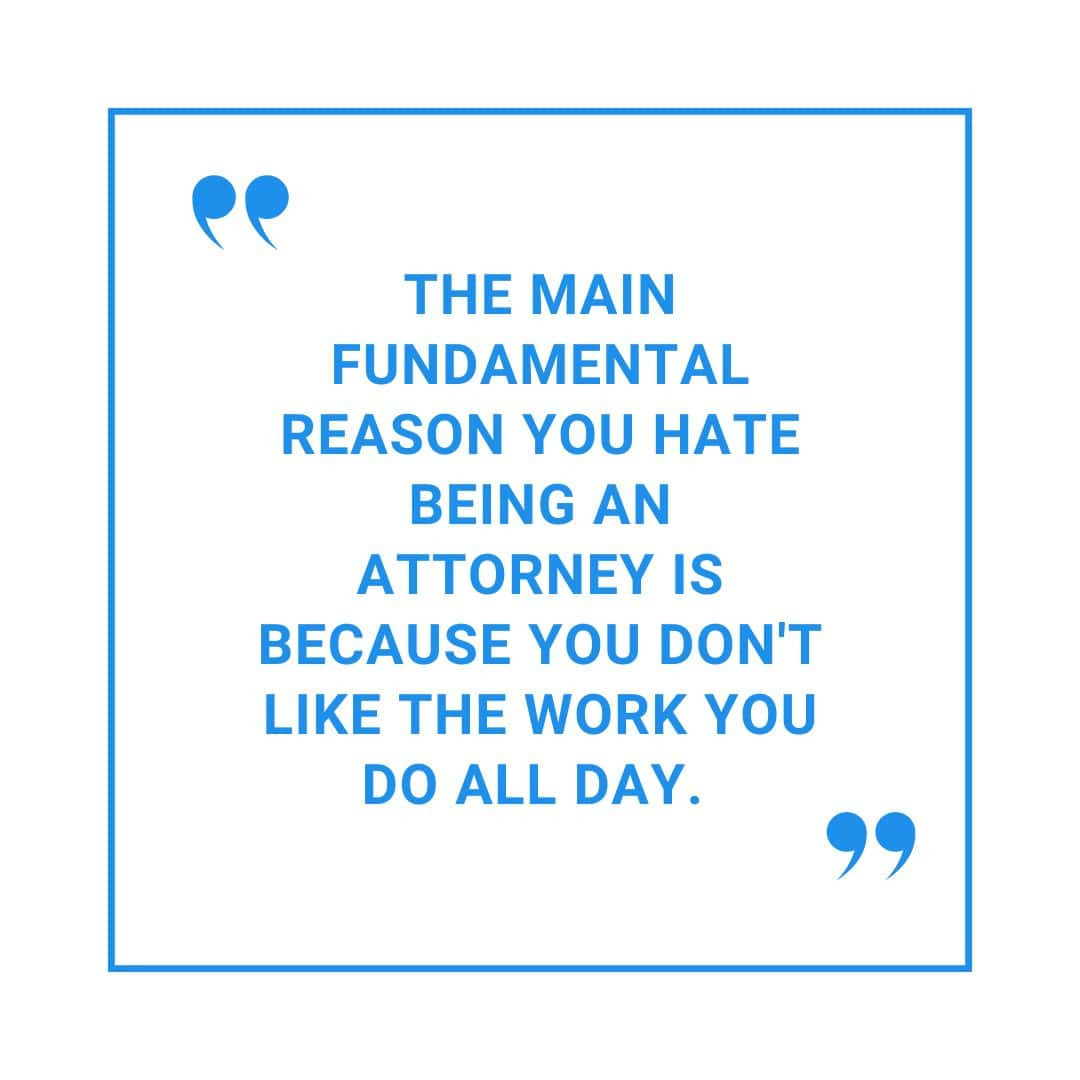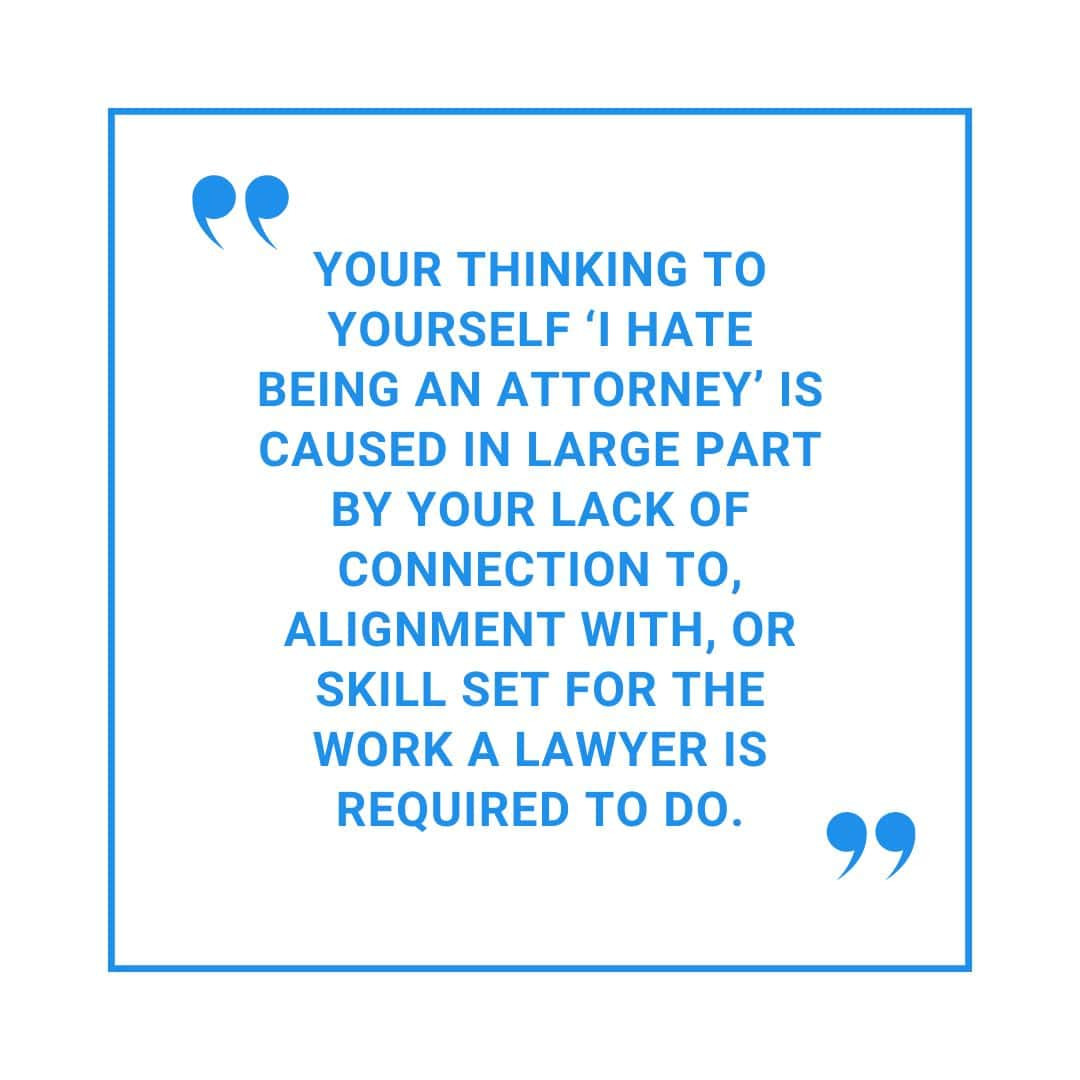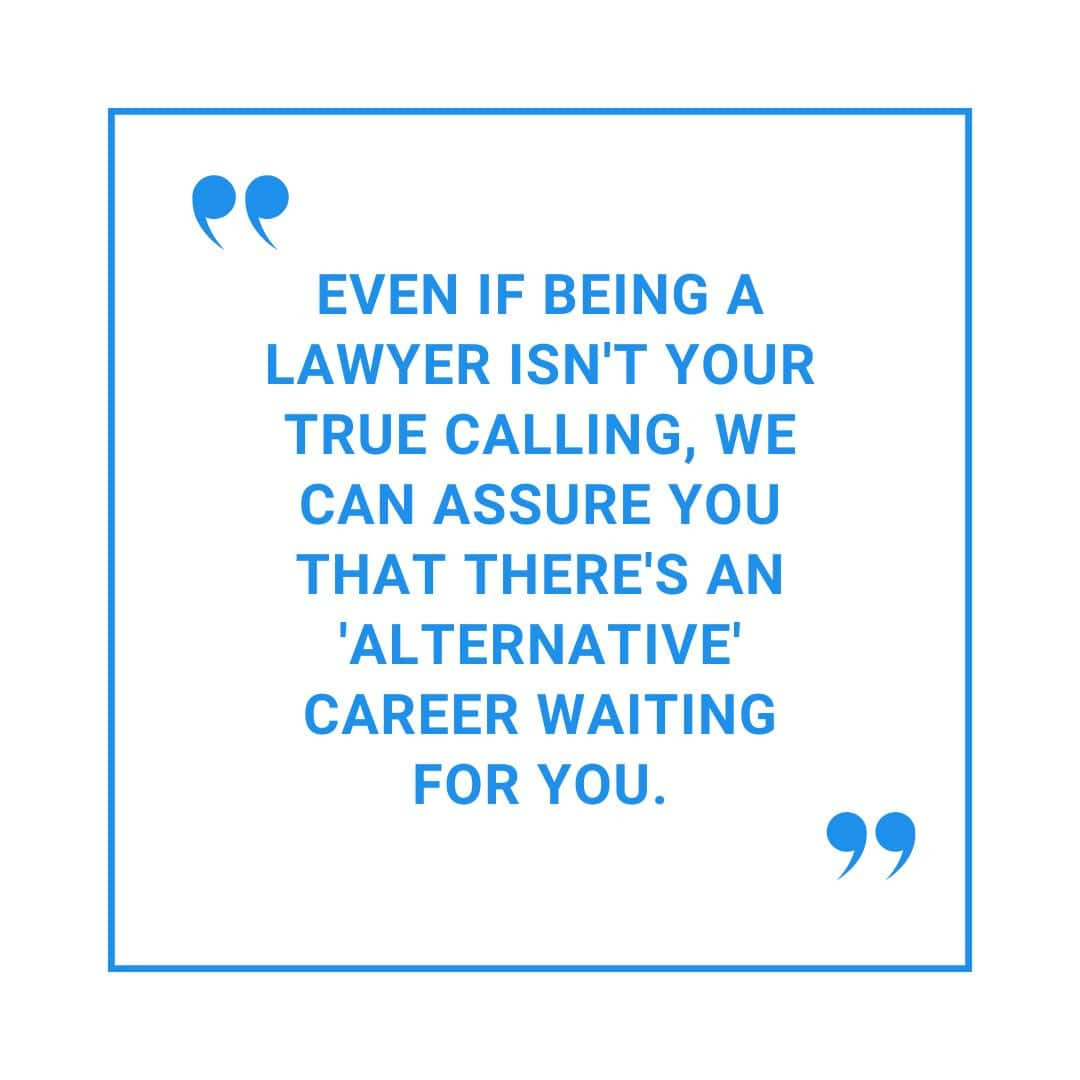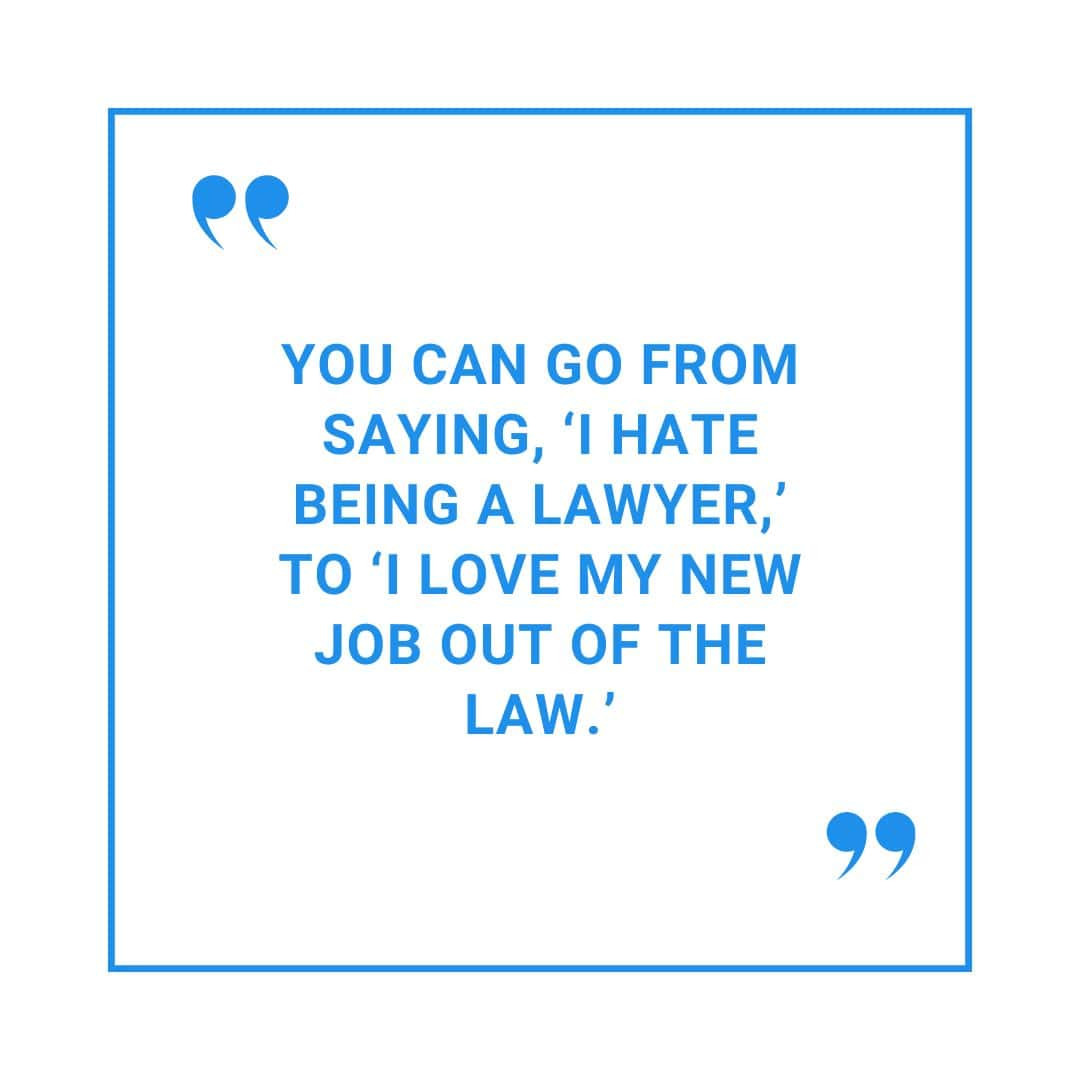It’s a question many aspiring and current lawyers ask themselves: “Is Being A Lawyer Hard?” You might have typed this very phrase into Google, or perhaps something similar like, “lawyer life difficulty,” “challenges of legal career,” or “why is being a lawyer so stressful.” If you’re here, rest assured, you’re not alone in questioning the realities of this demanding profession. Many attorneys grapple with unhappiness in their practice, feeling overwhelmed by their firms, or yearning for a different career altogether.
At Leave Law Behind, we understand these feelings deeply. We’ve navigated the very challenges you’re facing, both emotionally and physically. We’ve created LeaveLawBehind.com as a supportive community for individuals like you seeking clarity and change.
For Casey, one of the founders of Leave Law Behind, the realization of how difficult being a lawyer can be was a profound moment.
It struck him after a particularly grueling day. He’d just finished a draining software licensing negotiation, feeling depleted and anxious about the mountain of work still ahead. The pressure of deadlines and the fear of overlooking critical details in complex indemnification and liability clauses weighed heavily.
The opposing counsel seemed intent on conflict rather than resolution, and the client’s insistence on their own agreement version meant navigating unfamiliar territory within a tight timeframe to close the deal before the quarter ended.
And this was just one day in a career filled with similar pressures.
Walking home that evening, a wave of shame, disappointment, and fear washed over him. It was an intense, physical reaction, like a jolt of heat searing through his body. This overwhelming feeling, while painful, was also strangely liberating. It was an undeniable confirmation of a truth he had been suppressing.
“I hate being a lawyer,” he admitted to himself. “I hate practicing law.”
In that moment of stark clarity, he knew he needed to forge a new path, a career that aligned with his true self. The traditional legal career was simply not his calling.
If you resonate with these feelings, if you’re questioning your law school decision, your firm choice, or the lawyer career path itself, we understand. This article aims to explore the core reasons why being a lawyer can be so hard – reasons that might surprise you – and to outline actionable steps you can take to explore alternative, fulfilling careers outside of law. There is indeed hope for a happier professional life. 🙂
Take a Small Step—Click Here to Access Our Free Career Resource Library
The Unexpected Reason Why Being A Lawyer Feels So Hard
Before you can chart a course towards professional happiness, honest self-reflection is crucial. You need to identify the root cause of your dissatisfaction with being a lawyer. Understanding why being a lawyer is hard for you personally is the first step toward positive change.
When new members join our Leave Law Behind program, we begin by asking them to articulate what they dislike about being a lawyer. We encourage them to list the challenges they face. Their responses often cover a range of issues, which we categorize as the “Usual Suspects”:
- Difficult relationships and lack of trust with associates and colleagues.
- Feeling unappreciated by senior partners or firm leadership.
- Lack of clear or inspiring career progression within the legal field.
- Constant pressure from deadlines and demanding clients.
- Inability to achieve work-life balance due to long and unpredictable hours.
- Feeling perpetually “on call” to meet boss and client demands.
- Disappointment with lawyer salary compared to expectations.
- Emotional toll of constantly dealing with other people’s problems.
- Desire for more human connection than document-focused work allows.
- Frustration with the adversarial nature of legal practice and constant litigation.
- Chronic stress and anxiety.
- Realization that pursuing law was driven by external pressures (e.g., parental expectations).
This list could go on.
These are all valid and significant challenges that contribute to lawyer unhappiness. However, they are not the fundamental reason why being a lawyer feels so hard.
The primary, underlying reason is simpler and perhaps more profound: you likely don’t enjoy the daily work of a lawyer. The tasks you perform lack creativity, don’t utilize your core strengths, and ultimately, are not aligned with your inherent talents and interests. In essence, your true calling may lie outside the legal profession. You don’t actually like legal work.
 An image with text in a box stating: "The main fundamental reason you hate being an attorney is because you don't like the work you do all day."
An image with text in a box stating: "The main fundamental reason you hate being an attorney is because you don't like the work you do all day."
Many unhappy lawyers seeking to transition out of law and into different careers through Leave Law Behind share a common thread: a deep dissatisfaction with the day-to-day grind and the very nature of legal work.
Contrary to the glamorous portrayals of law in media, the reality for many lawyers involves a significant amount of routine and often monotonous tasks. Document review, drafting motions and briefs, client consultations, legal research, and deposition preparation can become repetitive and uninspiring. The work demands meticulous attention to detail and precision, which, over time, can be emotionally taxing and lead to burnout.
But it’s important to reiterate: at its core, the difficulty stems from a misalignment with the work itself.
This realization might be surprising, even simplistic. You might resist accepting that law isn’t your ideal path. Acknowledging that law school may have been a misstep can be difficult. It might seem too straightforward, or you might believe you should enjoy the work or that you’re suited for it.
However, your feeling that “being a lawyer is hard” is often rooted in a fundamental disconnect – a lack of alignment between your skills, interests, and the daily demands of legal practice.
For instance, one Leave Law Behind member, a litigator, realized his inherent aversion to conflict was a major source of his unhappiness. He shared, “I was in a Zoom meeting last Friday, and my boss said we needed to find something to fight about. He said it would be good for morale, and everyone cheered. I just thought, ‘I don’t want to fight, I don’t like fighting, I want to find solutions.’ I felt completely out of sync.”
 An image with text in a box stating: "The main fundamental reason you hate being an attorney is because you don't like the work you do all day."
An image with text in a box stating: "The main fundamental reason you hate being an attorney is because you don't like the work you do all day."
Another Leave Law Behind member described feeling overwhelmed by multiple stressors: billable hours, the pressure of perfection, challenging personalities, and a sense of lost control. Yet, through it all, she pinpointed her fundamental issue: she simply didn’t want to do the work.
Let’s delve deeper into her experience:
- Billable Hours: She described the required work hours as “terrible.” Ironically, while disliking the long hours, she also echoed a common lawyer complaint: the anxiety of not having enough billable hours. During slow periods, struggling to bill even 100 hours a month created as much, if not more, anxiety than billing 200+ hours.
- Perfectionism: The relentless demand for perfection was another major stressor. She consistently strived for excellence, but the inevitable minor errors were met with disproportionate criticism and scrutiny. The 99.9% of her work done perfectly seemed to be overshadowed by the occasional mistake.
- Clients and Colleagues: She also found the often-hostile personalities within the legal profession draining. Stress was rampant, and it often manifested as negativity directed towards subordinates.
- Future Outlook: Looking at partners and senior lawyers, she saw few, if any, whose lives she envied. The pervasive sense of unhappiness among senior colleagues was a stark warning sign. She realized she wanted a different future, a happier life.
- Financial Anxiety: Despite her desire to leave law, fear of job security and financial stability was a constant worry. She was concerned about finding a non-law job that could maintain her income level and allow her to manage student loan debt.
- Lack of Control & Meaningful Work: Ultimately, she felt a profound lack of control over her life. The legal tasks she found boring, uncreative, and purposeless dictated her schedule and, consequently, her life. The very work she disliked dominated her existence.
The positive outcome is that this member is now actively transitioning out of law with the support of the Leave Law Behind program!
Your inherent talents and passions are likely far better suited and more valued in a variety of non-legal careers!
Stop Hating Your Job—Click Here to Access Our Free Career Resource Library
Hope and Action: Becoming A “Recovering Lawyer”
The challenges of being a lawyer can lead to questioning your career path and yearning for roles that offer more excitement, purpose, and a better income to alleviate financial worries.
Even if law isn’t your true calling, rest assured that fulfilling “alternative” careers exist. Careers where you can thrive, earn well, and, most importantly, make a meaningful impact. You don’t have to remain trapped in a career you dislike.
Here are initial steps to guide you on your path out of law:
 An image with text in a box stating: "There is hope: What you can do now to become a "recovering lawyer""
An image with text in a box stating: "There is hope: What you can do now to become a "recovering lawyer""
1. Identify Your Unique Strengths
At Leave Law Behind, our goal isn’t simply to help you escape a miserable job, but to guide you towards a non-legal career where you can truly flourish. Leaving one unsuitable job for another makes little sense.
In Module 4 of our coaching program, we guide you through a process of discovering your “Unique Genius.” These are your innate skills and strengths that align with fulfilling alternative careers. When you leverage your natural talents in your work, job satisfaction and professional value increase significantly.
This is especially crucial for lawyers. Many attorneys initially chose their legal career path not because it was a perfect fit for their skills, but due to factors like financial security, stability, and social expectations.
The Leave Law Behind program empowers lawyers to discover fulfilling non-law careers by initiating a journey of self-reflection. We encourage you to look inward and recognize your core strengths and passions. By understanding your “Unique Genius,” you can tap into your authentic capabilities. Our program framework helps you identify the specific talents and abilities that set you apart, making you uniquely qualified for certain roles outside the legal field.
Consider the success story of Tyler Hinz, a Leave Law Behind graduate. The program helped him realize his skills extended far beyond the legal realm, possessing broad appeal for non-legal employers. He secured multiple interviews for positions requiring significant business experience, a field he had never directly worked in. His newfound self-awareness and confidence impressed interviewers. Ultimately, he transitioned from solo law practice to become the Director of Trusts, Estates, and Stewardship at the University of California, Santa Cruz. He has since been promoted and recruited to become the Executive Director of Planned Giving at Santa Clara University. Tyler’s journey exemplifies the possibilities awaiting you. You can read more about Tyler’s story here: [https://leavelawbehind.com/stories-tyler/**](https://leavelawbehind.com/stories-tyler/)**.
2. Explore Desirable Non-Law Careers
You might be questioning whether a mid-career change is feasible. You might doubt your qualifications for alternative careers or wonder if suitable non-legal jobs even exist.
The answer is unequivocally yes. You possess “transferable skills” highly valued in various non-law fields. The skills you utilize daily as a lawyer – active listening, clear writing, persuasive communication, problem-solving, client management, and stakeholder engagement – are in high demand across diverse industries.
We know this because we’ve successfully helped hundreds of lawyers transition to fulfilling non-legal careers.
Our program is designed to pinpoint your Unique Genius skills and then align them with suitable job opportunities. This involves carefully matching your strengths with the requirements of various non-law job descriptions. Our team meticulously analyzes job listings to identify roles that not only match your skill set but also offer satisfaction and growth potential. This ensures your career transition is a step towards a role that resonates with your core strengths.
One Leave Law Behind graduate, for example, described her primary interest as “herding cats.” Through self-reflection, we discovered her aptitude for clarifying ambiguous situations and her enjoyment of intense work when it held meaning. She thrived on aligning teams towards common goals, fostering collaboration, and project managing complex initiatives. These strengths pointed towards the fields of “compliance” and “change management.” She is now the Head of Compliance and Change Management for a Florida county clerk and comptroller’s office! She loves her new non-legal role and no longer works with lawyers!
This targeted approach ensures you don’t simply move into another unsatisfying job. Instead, you are guided toward positions where you can excel and find genuine fulfillment. Identifying your Unique Genius provides self-awareness about your potential and its application outside of law. This self-understanding, combined with our strategic skill-to-job matching, leads to a rewarding and sustainable career transition. By focusing on your inherent strengths and passions, the Leave Law Behind program helps you find the right non-law job, paving the way for a successful and satisfying career change.
Take a Small Step—Click Here to Access Our Free Career Resource Library
3. Craft a Targeted Resume and Cover Letter
You’re likely familiar with crafting resumes for legal positions. However, creating a resume for a non-law job requires a different approach. Casey, a contributing writer for Above the Law, has written extensively about non-law resumes in his article, Three Things To Keep In Mind As We Reposition Our Legal Resume To Get A Non-Law Job (read article here).
Leave Law Behind simplifies this process. We’ve identified the top 21 “alternative” roles for lawyers and created customizable resume templates for each. These templates are readily downloadable Word documents, designed for immediate use.
Deb, a program graduate, exemplifies the effectiveness of our resume approach. She transitioned from an unhappy lawyer to a technology marketing executive. Before using our templates, Deb sent over 30 non-law resumes with no responses. After utilizing our templates, she immediately received interview requests and secured a technology marketing executive position in Seattle perfectly aligned with her interests.
Our program focuses on highlighting your transferable skills and experiences to facilitate a seamless transition. A key element is our resume crafting assistance. The Leave Law Behind team helps you create a resume that details your legal background while emphasizing the positive impact of your experience using “resulting in” language. This approach showcases not just your responsibilities but the tangible benefits and value you bring to a potential employer. For example, instead of simply stating “managed a team of associate attorneys,” the resume would highlight “managed a team of attorneys, resulting in a 30% increase in efficiency and a significant reduction in case processing time.” This method translates legal skills into universally understood benefits, demonstrating your value in a non-legal context.
4. Address Hiring Manager Concerns About Leaving Law
A primary concern for lawyers transitioning out of law is the interview process with hiring managers. You might worry about rejection or being perceived negatively for leaving the legal profession. You may fear difficult questions you feel unprepared to answer, or anticipate negative interviewer attitudes.
However, this is often far from reality. Leave Law Behind graduates are thoroughly prepared for interviews, confident in their Unique Genius narrative, and present themselves effectively. They often find the actual interviews far less daunting than anticipated. The Leave Law Behind program is specifically designed to ensure smooth transitions by emphasizing transferable skills and providing comprehensive interview preparation.
A core component is role-playing sessions that simulate real hiring interviews. These sessions provide a safe space to practice answering common interview questions and receive constructive feedback directly from our coaches. This process builds confidence and equips you to articulate your strengths and experiences in a way that resonates with hiring managers. We focus on identifying and showcasing valuable lawyer skills like critical thinking, problem-solving, negotiation, and meticulous attention to detail – qualities highly sought after in diverse industries. By emphasizing these transferable skills, you clearly demonstrate your potential for success in non-legal roles – aiming to impress from the very first impression! This self-discovery and effective communication empower you to take control of your career transition.
One Leave Law Behind member who transitioned to a compliance manager role at a major bank noted how exceptionally prepared he felt for his interviews. He was, in fact, overprepared, having anticipated and practiced answers for questions that weren’t even asked! This sense of preparedness and the confidence it instills is a testament to the effectiveness of the Leave Law Behind program.
Don’t Sabotage Your Escape From A Hard Career
 An image with text in a box stating: "Being a lawyer sucks … so don't sabotage yourself as you try to get out of the law"
An image with text in a box stating: "Being a lawyer sucks … so don't sabotage yourself as you try to get out of the law"
We’ve explored the core reason why being a lawyer can feel so hard and outlined steps to explore a path out of law.
There’s one crucial element to address: self-sabotage. You may agree with everything discussed, but the biggest obstacle to your happiness might be yourself.
Self-sabotage is a significant barrier preventing unhappy lawyers from making career changes. It occurs when you unknowingly hinder your own plans for positive change. This can manifest as self-doubt, fear of failure, settling for less, or persistent anxiety. It can also appear as chronic procrastination and an inability to take necessary actions.
Despite dissatisfaction with your legal career and regret about law school, fear of the unknown can be paralyzing. Lawyers may doubt their ability to succeed in a different field, questioning the transferability of their skills or their capacity to replicate their legal successes. Worries about financial stability, potential failure, and the impact of career change on identity can be overwhelming. This apprehension can lead to inaction, where the familiar discomfort of the current situation feels safer than the uncertainty of a new path.
The perceived prestige of the legal profession and societal expectations can reinforce this fear, making it harder to break free. Self-sabotage can trap lawyers in roles that drain their passion and well-being, preventing them from pursuing fulfilling opportunities beyond law firms. Recognizing these self-sabotaging behaviors and addressing underlying fears is essential for breaking free and pursuing a more rewarding career.
Procrastination in leaving law often stems from a lack of direction. Feeling lost without a clear plan, map, or guidance creates a knowledge gap that hinders action.
Leave Law Behind bridges this gap.
In summary, to move from “being a lawyer is hard and I hate it” to “I love my new job outside of law”:
- First, acknowledge your dissatisfaction with the daily realities of being a lawyer. Objectivity, though challenging considering your investment in law, is crucial. Recognize the facts of your unhappiness.
- Next, accept that you may not know the next steps.
As motivational speaker Paul F. Davis advises, “If you don’t feel it, flee from it. Go where you are celebrated, not merely tolerated.”
Don’t Hate Your Job, Begin to Love It—Click Here to Access Our Free Career Resource Library
 A person holding a sign that says do what you love.
A person holding a sign that says do what you love.
Explore these helpful articles and resources for your journey out of law:
Alternative Careers for Lawyers: The Ultimate Guide to Your Dream Career Out of the Law
Attorney Burnout: Break Free from Your Lawyer Anxiety
How an In House Legal Job Can Be Your Path Out of the Law
“Don’t Be A Lawyer”: What the TV Show Video Got Right
